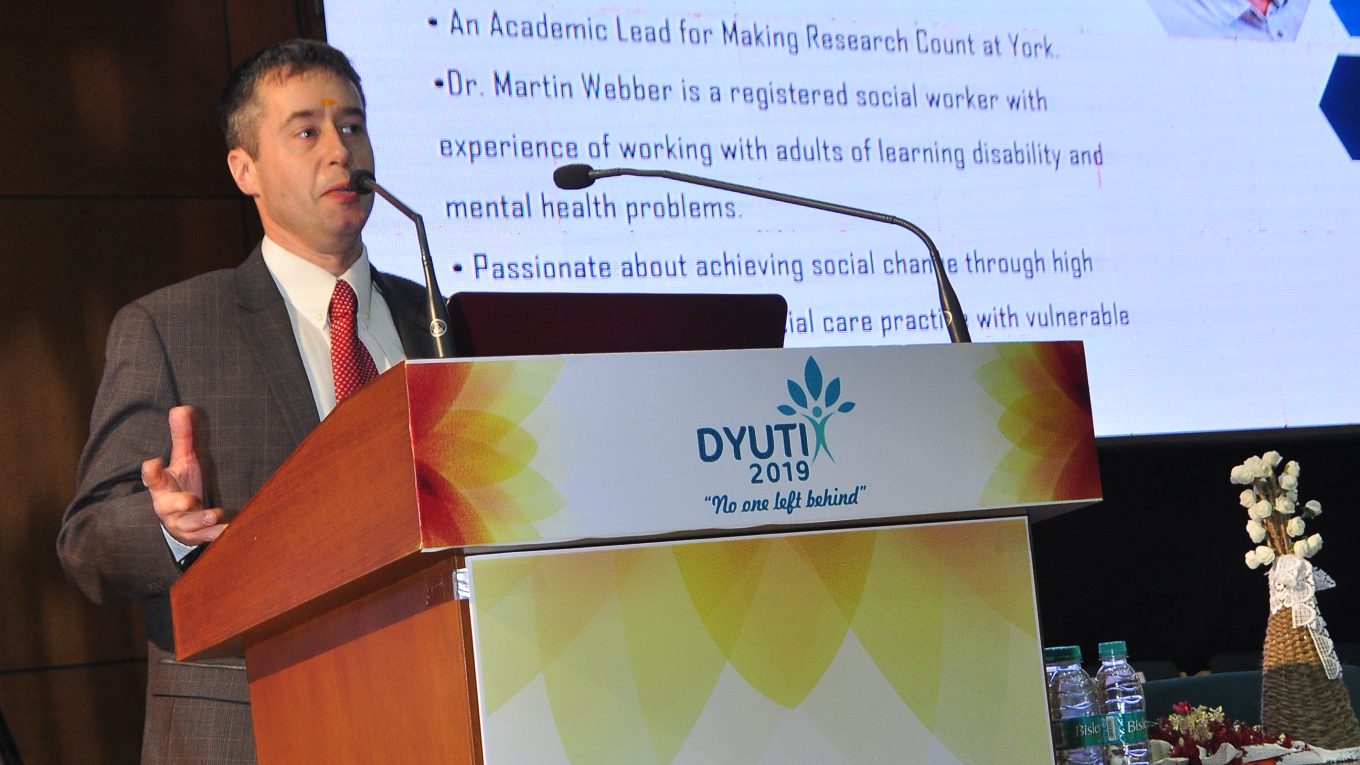Our work in Kerala, India
Our work in Kerala has continued this week with support for the DYUTI 2019 conference with the Rajagiri College of Social Sciences (RCSS).
This is a global social work conference on multi-sectoral and interdisciplinary responses to health and well-being. It is organised as part of the UK-India Education and Research Initiative (UKIERI) project which the International Centre for Mental Health Social Research is conducting with RCSS, with collaborators from the University of Melbourne and the World Health Organisation.

I provided a keynote address to the conference which discussed the growth in non-communicable disease in India, particularly in Kerala. The slides can be downloaded here.

Developing new roles for social workers in India
Our work in India is exploring the potential for social workers to be involved in managing social risk factors for high blood pressure and blood glucose levels.
Early findings from our community survey in Cochin indicate that there are clusters of risk factors preventing the effective management of chronic disease. While it is widely known that lifestyle changes, such as increased physical activity or changes to diet using natural ingredients, are often required, we found a distinct cluster of social risk factors associated with high blood pressure and high blood glucose levels.
People with low income or poor literacy, who are living in communities with low social cohesion and a lack of integrated networks, have an increased prevalence of depression, anxiety, high blood pressure or high blood glucose. Social work skills could be used to address some of these issues which will help people to more effectively manage their blood pressure and blood glucose levels, which will reduce their risk for stroke or cardiovascular disease.
Kerala has an untapped resource of qualified social workers with a specialism in health and mental health. They are ideally placed to work in local communities to address social issues and mental health problems, though there are currently no roles for them in primary care settings.
The UKIERI-funded project is supporting a new social work research team at RCSS to investigate how this could happen. So far, they have completed a scoping survey and a community survey. They are currently undertaking qualitative interviews to inform the development of a complex social intervention.

The DYUTI conference has enabled us to discuss our emerging findings with 150 delegates from 28 countries. The next opportunity for the international research team to meet and discuss the research with others will be at the International Conference on Social Work in Health and Mental Health at the University of York in July 2019.
The RCSS team is led by Dr Saju M.D. and we are providing support and mentorship in collaboration with Professors Lynette and Jacques Joubert of the University of Melbourne and Dr Meredith Newlin and Dr A.T. Jotheeswaran of the World Health Organisation.


